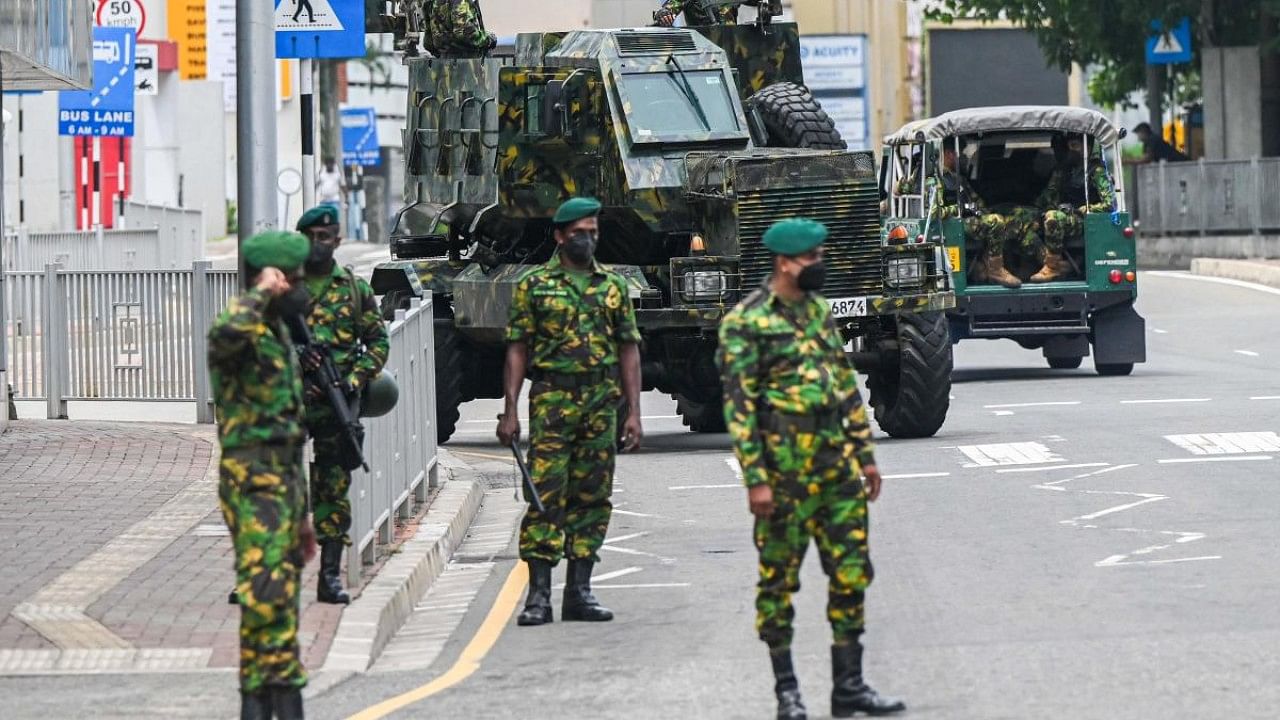
Sri Lanka's top defence official on Wednesday ruled out a military takeover despite the island nation's political deadlock and thousands of troops on the streets to keep order after two days of deadly mob violence.
Weeks of peaceful protests against a crippling economic crisis have boiled over after government loyalists attacked demonstrators demanding the country's leaders resign.
A nationwide curfew is in effect and troops are patrolling streets with instructions to shoot on sight anyone attacking property or committing acts of violence.
Footage of armoured personnel carriers moving around the streets of the capital Colombo have prompted accusations from opposition lawmakers and social media users that the country could be facing an imminent coup.
"When there is a dangerous situation in the country, powers are given to the military to deal with it," Kamal Gunaratne, the secretary of Sri Lanka's defence ministry, told a press conference in response to the claims.
"Don't ever think that we are trying to capture power," he added. "The military has no such intentions."
Gunaratne was a top field commander in the final battle that defeated Sri Lanka's separatist Tamil Tigers movement in 2009, ending a decades-old civil war.
His superior at the time was Gotabaya Rajapaksa, now serving as the nation's president.
The leader has kept to his tightly guarded official residence in recent weeks after huge protests calling on him to step down.
He has so far been unable to form a unity government to steer the country out of its financial crisis.
The defence chief said the government had asked the military to reinforce police because of the "dangerous situation" facing the country, with nine people killed in mob attacks since Monday.
Opposition leader Sajith Premadasa had earlier suggested that the violent unrest had been orchestrated to give the pretext for a coup.
"In the guise of angry mobs, violence is being incited so military rule can be established," Premadasa wrote on Twitter.
And social media users said the country's military deployment could be the first step to a seizure of political power.
"If no political solution soon, army's... takeover is a real possibility," said Ashok Swain, a professor of peace and conflict research at Sweden's Uppsala University.
Despite Sri Lanka's long history of civil war and powerful armed forces, the island nation has never been subjected to a military takeover.
A sole attempt at a military coup in 1962 ended in failure without a single shot fired.